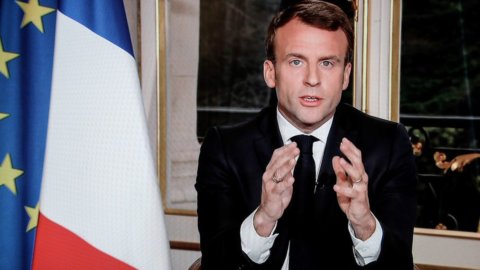With 51 billion euros spent, the games in Sochi, the first after the end of the USSR, will be the most expensive in history. It is not only the economic question that raises controversy. Defined by Chechen warlord Doku Umarov as "satanic dances on the bones of our ancestors", the games, which will be held from February 7 to 23, are accompanied by threats from Caucasus jihadists. The recent attacks in Volgograd and Machackala are just the most recent manifestations of this alarm.
Specter terrorism
The problematic nature of Sochi is inherent in its geographical position: not only is it close to the unstable republics of Chechnya, Dagestan, Ingushetia with a Muslim prevalence, but it is also a few kilometers from the border with the republic of Abkhazia, born from the Russian-Georgian conflict of 2008 which still does not enjoy international recognition.
Sochi is armored. For its security, Moscow has spent 2,5 billion euros, the secret services have had carte blanche on interceptions, data collection, detentions, arrests. "If you want to eliminate someone, kill them", so the Chechen Interior Minister Apti Alaudinov urged his men to use every method to thwart the terrorist attacks.
However, Sochi has not been targeted by terrorists so far. The places most affected were Volgograd, the former Stalingrad, witness to three attacks in three months, Pyatigorsk, Dagestan and Kabardino-Blakaria, scenario of a war that kills about 700 people a year and which the International Crisis Group has not hesitated to define “the bloodiest conflict in Europe”.
In the silence of the press, Russian Bin Laden, Doku Umarov, launches his appeals for international Islamic solidarity, relying on the incredible kaleidoscope of ethnic groups that inhabit those lands such as Chechens, Kabardins, Abkhazians, Circassians (of which this year marks the 150th anniversary of the expulsion from the Caucasus and of the "Circassian genocide") and many others.
Among Umarov's diehards, what is striking is the number of women, the so-called black widows or shahidkimartyr women. They are mostly young and educated who have seen fathers, brothers and friends die in the guerrilla warfare and for whom terrorism is sometimes a way to calm the thirst for revenge, other times it is the only way to regain one's honor after a rape, in a closed and conservative society like the Chechen one.
Syrian piece
Actually, separatist reasons are not the basis of the attacks alone. In the Caucasian theatre, questions related to Russia's strategic interests intersect in the clash between Shiites and Sunnis in which Moscow has been entangled since the war in Afghanistan in '79.
The Kremlin's unconditional support in favor of the Syrian regime of Bashar al-Assad was not a welcome move by the separatists who headed in hundreds to Damascus to support the revolt of their Syrian brothers.
However, the issue is more complicated and links Russia to the economic affairs of Saudi Arabia and Qatar. The latter countries had previously offered Damascus not only the equivalent of a three-year budget, but also their willingness to put down the insurgency if Assad distanced himself from Iran, the arch-enemy of the Sunnis. This was not the case and therefore Prince Bandare Bin Sultan, head of the Saudi services, met with the Russian president last July and returned to meet him last month.
Vladimir Putin would have asked the Saudis for a substantial green light on their gas pipelines and help in controlling the Chechen terrorists who threaten the games. In return, the prince has allegedly demanded the cessation of Russian support for the Assad regime and the postponement of the peace conference on Syria, Geneva 2.
Curbing Islam
Now, however, Russia has no intention of giving in, especially in light of the good diplomatic work done on Syria. Supporting the Shiite regimes from Syria to Iran is a way for Russia to curb the influence of nationalist Islamism in the Caucasus: any uncontrolled fall of Assad would be interpreted as a breach in the wall of the internal defense system, threatened by the Islamists and their allies.
Meanwhile the Chechens continue their attacks to avenge twenty years of massacres and between now and the Olympics it will be an endless nightmare of blood. Putin may even succeed in locking down Sochi, but as long as violence is met with violence, it will be impossible to create the foundations for peace. And it is certainly not possible to lock down all of Russia.
Read the Affari internationali website





